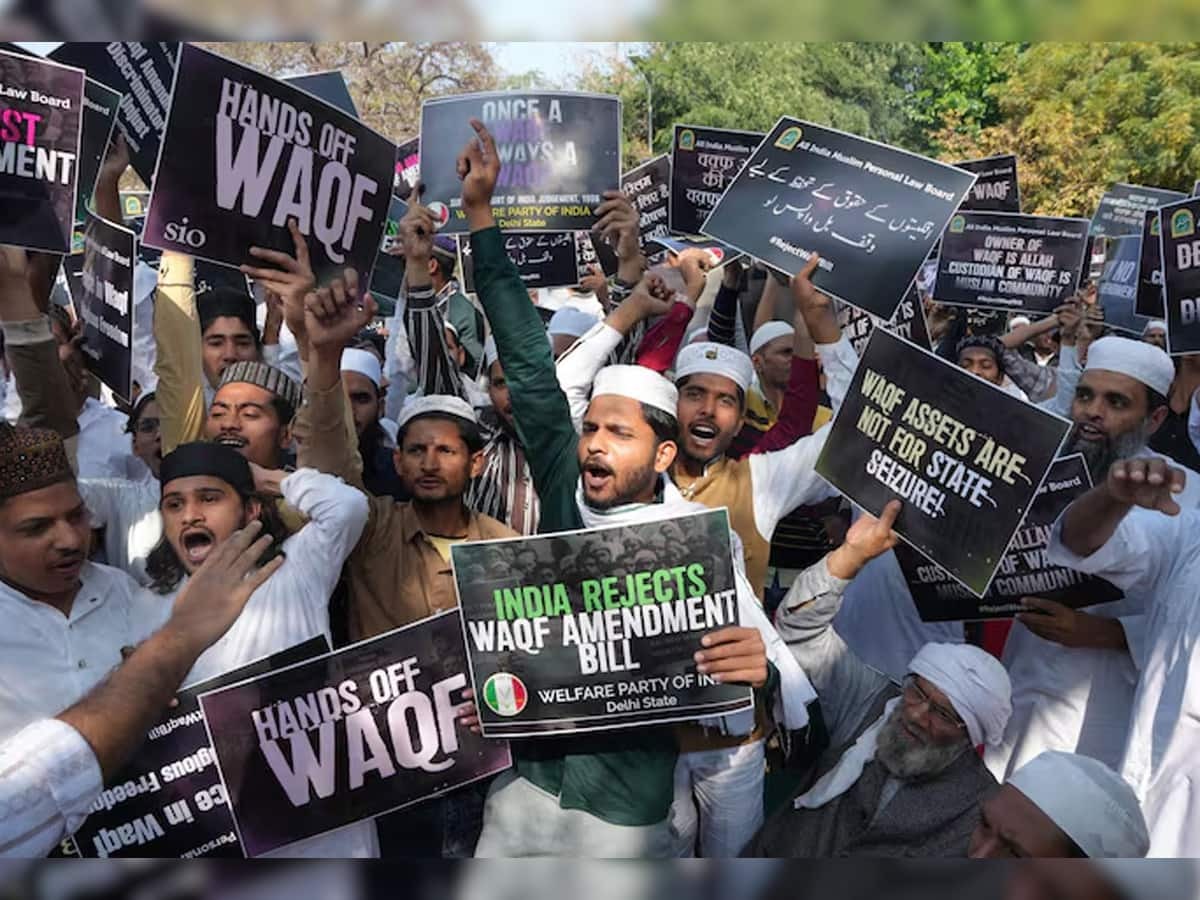The Supreme Court is starting hearing on petitions filed against the new Waqf Act from today. 73 petitions have been filed in the court and it is being told that today 10 petitions have been listed for hearing. The constitutional validity of this law has been challenged in the court. Petitions claim that Waqf properties will be managed unusual and this law violates the fundamental rights of Muslims under the amended law.
The hearing of the case in the Supreme Court is scheduled at 2 pm, where the bench of three judges of Justice Sanjeev Khanna, Justice Sanjay Kumar and Justice KV Vishwanathan will hear the petitions.
It is noteworthy here that the Central Government has recently amended the Waqf Act, which was previously introduced as a bill in both houses of Parliament and after the passage of the President after the passage of the President, it came into force as a law. Protests took place in many places against this law and the protests in Bengal became violent.
Several issues have been raised in the petitions filed against the Waqf Amendment Act. Special emphasis has been laid on some points in applications. The petitioners say that the electoral structure of Waqf boards has been abolished under the amendment. Under the new amendment, non-Muslims can now be appointed in Waqf boards, which is being claimed that this may affect the self-government and management of their religious properties.
Under the Act, executive officers will get more control over Waqf properties. This has caused concern that in future the government can issue arbitrary orders on Waqf properties and take them in their hands.
The petitioners argue that the Act prevents members of Scheduled Tribes from creating Waqf, affecting their fundamental rights. The definition of Waqf has been changed in the Act, which has eliminated the judicial tradition of Waqf by users. This can weaken the rules made for the safety of Waqf.
Petitions claim that in many cases there is a fear that new rules may cause damage to centuries -old Waqf properties, which were established oral or informally. The petitioners have alleged that this law is an attempt to weaken the religious, cultural and social rights of the Muslim community.
Who has raised the challenge
Many political parties across the country have filed petitions in the Supreme Court against the amendments made in the Waqf Act. The main petitioners include several parties including Congress, Trinamool Congress, CPI, YSRCP. Along with this, representatives of parties like actor Vijay’s party TVK, RJD, JDU, AIMIM and AAP are also included.
Apart from this, two Hindu sides have also filed an application. Advocate Hari Shankar Jain has filed a petition claiming that some sections of the Act may have illegal occupation of government properties and Hindu religious places. Noida resident Parul Kheda has also filed a petition, in which he has also given similar arguments.
All Kerala Jamiatul Ulama, All India Muslim Personal Law Board and religious organizations like Jamiat Ulama-e-Hind have also filed petitions against this law. Maulana Arshad Madani, president of Jamiat Ulema-e-Hind, also has an important contribution in this case.
Petitioner vs. central government
Where the petitioners are against this law. There, the central government considers it a means of ensuring transparency and accountability. The government says that this research is important to improve the management of Waqf properties and reduce the possibility of corruption. This will improve administration and proper management of Waqf properties will be possible.
Apart from this, seven states have also appealed to the Supreme Court to intervene in favor of this law. These states argue that this Act is necessary for constitutional, non-discriminatory and good administrative rule.
The central government has also filed a cavity in the court. Caviet is a type of legal notice, which makes it ensure that their side will also be heard when the order is passed. This means that the central government is completely adamant on the amendments made in the law. It remains to be seen what the Supreme Court takes on this matter.
The post is now a legal battle on the issue of Waqf law; 73 petitions filed in the Supreme Court, the petitions in support from 7 states first appeared on News India Live | Breaking India News, The Indian Headline, India Express News, Fast India News.
